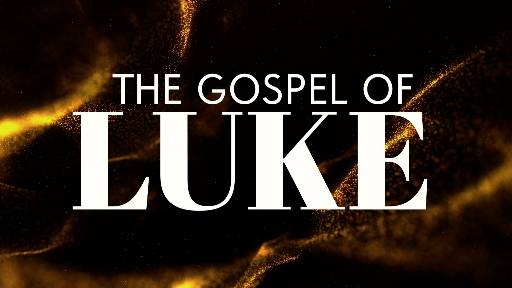-
They Wanted To See
Contributed by John Newton on Mar 22, 2021 (message contributor)
Summary: Bartimaeus and Zacchaeus both wanted to see…
During my years in active pastoral ministry a large proportion of my reading was taken up with biblical, pastoral and theological works. So, one of the goals that I set for myself in retirement was to read more fiction. I have to admit that thus far I haven’t managed to live up to that resolution in quite the way I’d hoped. But it has been a delight to be introduced to characters from a whole variety of places and periods and to share (if only for a brief period of time) in their worlds and their experiences.
One of those characters was a young French teenager named Marie-Laure Leblanc. Her story takes place in German-occupied France during the Second World War. Her world is one of darkness, not only because of the Nazi invasion and the horrors of war, but because Marie-Laure is blind. As I lived with Marie-Laure and shared in her adventures and in her world of sightlessness, I didn’t want the story to end. For me it was one of those books you wish would go on forever.[1]
In the real world, though, blindness is an affliction I hope that none of us would wish on anyone. On the other hand, I have been privileged to know a few people who were blind over the course of my ministry. And I have to say that in every case they were able to meet their circumstances with a remarkable perseverance and a determination to live life to the fullest, in spite of their loss of sight.
Sadly, such was not the case in the world that Jesus and his followers inhabited and where blindness was much more common than it is today. It could be a condition of birth, as we see in the man whom Jesus sent to wash his eyes in the pool of Siloam (John 9:1-7). It could also be the result of a variety of diseases, even something as easily treatable as pinkeye. And then there was the blindness of old age, usually due to cataracts and aggravated by repeated exposure to sand and the fierce glare of the Middle Eastern sun.
To make matters worse, no effective treatment was available to those who suffered from diseases of the eye. There were no antibiotics and no safe or effective surgical procedures. In my research for this morning’s sermon, I did come across a form of surgery for cataracts that was known in the ancient world, called couching. (If you’re at all squeamish, you may want to block your ears for a moment.) Couching involved using a sharp thorn or a needle to pierce the surface of the eye and force the lens downwards until the patient could begin to see shapes or movement. Needless to say, in the vast majority of these procedures the patient ended up totally blind.
It would not be for more than a thousand years after the time of Jesus, in 1268, that eyeglasses first came into use. Another five hundred years would elapse before the founding of the first school for the blind, in 1791. It would be nearly forty years more until Louis Braille invented his system of raised dots so that blind people could read, in 1829, followed four years later by the publication of the Gospel of Mark in raised print—the first time blind people could read the Scriptures for themselves. Another century would pass before the founding of the first seeing-eye dog school. And it was in the late 1960s—within the lifetime of many of us here this morning—that modern laser eye surgery became a possibility.
In spite of all these improvements, blindness remains a daunting affliction. But try to imagine what it must have been like in biblical times!
Bartimaeus
Which brings us to the gates of Jericho, as Jesus and his followers are making their way into the town. By now Jesus’ fame has become widespread and they are surrounded by a large crowd. The commotion is such that you might hardly notice a crouched figure sitting at the side of the road. Luke doesn’t even give us his name—and I suspect that no one in the crowd knew it either. But in Mark’s gospel we find that it is Bartimaeus.
The sound of the crowd piques Bartimaeus’ curiosity, so he tugs at someone’s robe and asks what’s going on. “Jesus of Nazareth is passing by,” comes the reply. So Bartimaeus begins to shout, “Jesus, Son of David, have mercy on me!” Someone in the crowd yells at him to shut up, but that only encourages him to cry out all the louder, “Son of David, have mercy on me!”
Then Jesus stops. A silence descends over the crowd, as Jesus asks for the man to be brought to him. “What do you want me to do for you?” he asks. “Sir, I want to see,” comes the reply. “Receive your sight,” Jesus says to him. “Your faith has healed you.” Bartimaeus opens his eyes and there before him he sees the faces of the crowd, staring in amazement. He sees the azure blue of the sky and, flitting back and forth, the birds, whose twitters he could only hear before.

 Sermon Central
Sermon Central



